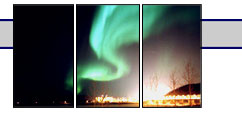3.3 Confidentiality
Confidential Information
3.3-1 A lawyer at all times must hold in strict confidence all information concerning the business and affairs of a client acquired in the course of the professional relationship and must not divulge any such information unless:
(a) expressly or impliedly authorized by the client;
(b) required by law or a court to do so;
(c) required to deliver the information to the Law Society, or
(d) otherwise permitted by this rule.
Use of confidential information
3.3-2 A lawyer must not use or disclose a client’s or former client’s confidential information to the disadvantage of the client or former client, or for the benefit of the lawyer or a third person without the consent of the client or former client.
Lawyers’ obligation to claim privilege when faced with requirement to surrender document
3.3-2.1 A lawyer who is required, under federal or provincial legislation, to produce a document or provide information that is or may be privileged must, unless the client waives the privilege, claim solicitor-client privilege in respect of the document.
Future harm / public safety exception
A lawyer may disclose confidential information, but must not disclose more information than is required, when the lawyer believes on reasonable grounds that there is an imminent risk of death or serious bodily harm, and disclosure is necessary to prevent the death or harm.
3.3-4 If it is alleged that a lawyer or the lawyer’s associates or employees:
(a) have committed a criminal offence involving a client’s affairs;
(b) are civilly liable with respect to a matter involving a client’s affairs;
(c) have committed acts of professional negligence; or
(d) have engaged in acts of professional misconduct or conduct unbecoming a lawyer, the lawyer may disclose confidential information in order to defend against the allegations, but must not disclose more information than is required.
3.3-5 A lawyer may disclose confidential information in order to establish or collect the lawyer’s fees, but must not disclose more information than is required.
3.3-6 A lawyer may disclose confidential information to another lawyer to secure legal or ethical advice about the lawyer’s proposed conduct.
3.3-7 A lawyer may disclose confidential information to the extent reasonably necessary to detect and resolve conflicts of interest arising from the lawyer’s change of employment or from changes in the composition or ownership of a law firm, but only if the information disclosed does not compromise the solicitor-client privilege or otherwise prejudice the client.



